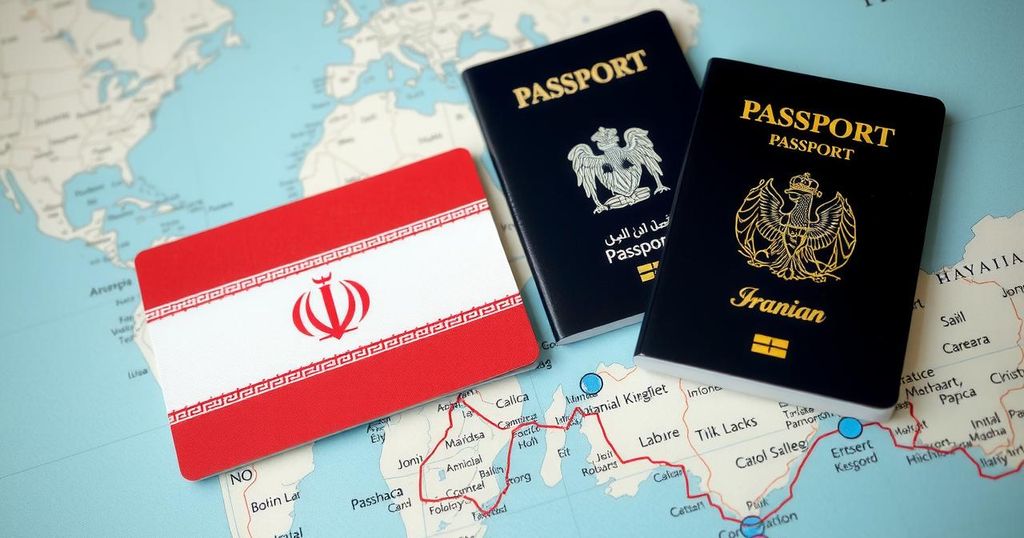Investigation Reveals Iranian Oil Baron Exploited Citizenship by Investment for Sanctions Evasion

A Bloomberg investigation reveals that Hossein Shamkhani, son of Iran’s former national security chief, used Dominican and EU passports to bypass sanctions and gain international finance access. His network exploited Dominica’s Citizenship by Investment program, underscoring concerns about the regulation of such citizenship schemes in relation to global financial security.
Recent findings by Bloomberg have uncovered that Hossein Shamkhani, the son of Iran’s former national security chief, adeptly evaded economic sanctions by utilizing Dominican and European Union (EU) passports. The investigation reported that Shamkhani and his associates initially procured Dominican citizenship, subsequently leveraging it to acquire EU passports from Malta and Cyprus. This maneuver enabled them to navigate compliance protocols of significant global financial institutions without raising any suspicions, despite allegations of his involvement in Iran’s arms trade and associations with sanctioned entities.
The report emphasized the role of Dominica’s Citizenship by Investment (CBI) program, which has proven to be a conduit for substantial financial inflows to the island’s economy. This program has been operational since the early 1990s, providing a pathway for individuals, particularly those with contentious backgrounds, to obtain an additional nationality. Bloomberg’s inquiry revealed that this ease of access to citizenship has permitted an influx of individuals whose origins would typically trigger scrutiny within the financial sector.
Furthermore, the investigation shed light on Shamkhani’s background. Following his education in Moscow and Beirut, he returned to Iran where he established the Admiral Group, influenced by his father’s prominent governmental roles. His political exposure and affiliations with sanctioned individuals would usually raise red flags with major financial institutes, thereby highlighting Dominica’s CBI program as a viable solution to circumvent such concerns.
Through the acquisition of Dominican documentation, Shamkhani and his close colleagues managed to attain additional EU passports, allowing them to conceal their Iranian identities and pass compliance evaluations in international banking. Facilitated by the anonymity provided by Dominica’s program, Shamkhani’s network successfully penetrated several established banking entities, thus solidifying their business operations within the global finance landscape.
Moreover, the investigation indicates that Shamkhani was not alone in this venture; various Iranian nationals also obtained Dominican citizenship which enabled them to operate without evident ties to Iran, further enriching Shamkhani’s business empire that spans multiple firms and exceeds billions in revenue.
The article illustrates the growing concerns surrounding citizenship by investment programs, particularly in relation to their potential use by individuals seeking to circumvent financial restrictions imposed due to illicit activities. The case of Hossein Shamkhani, with connections to Iran’s governmental structure and its global sanctions, serves as a pertinent example of how such programs can inadvertently facilitate access to the international financial system for individuals under scrutiny. The investigation by Bloomberg elucidates the ease with which individuals can exploit citizenship avenues to achieve financial acceptance, despite their questionable backgrounds.
In summary, the investigation by Bloomberg highlights the concerning implications of citizenship by investment schemes like Dominica’s CBI program. While intended to boost economic growth, these programs can also offer pathways for sanctioned individuals to access the global financial system. The case of Hossein Shamkhani underscores the need for stricter regulations and scrutiny within these frameworks to prevent the exploitation of such initiatives for illicit financial maneuvers, thereby fostering greater accountability within international finance.
Original Source: whistleblower.org








